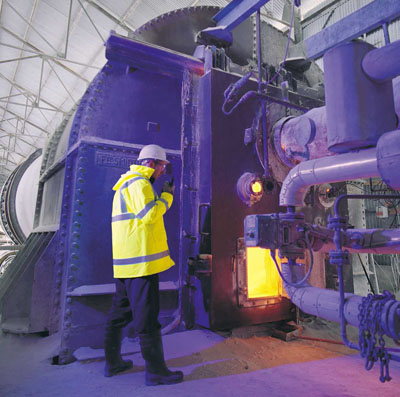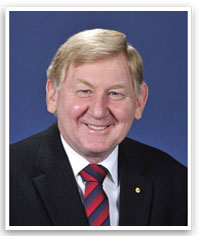Energy ministers pictured at the International Energy Agency two-day conference on the globe's energy future, held in Paris this week
Paris was the scene this week for a two-day International Energy Agency (IEA) meeting, when energy ministers from around the globe converged to talk about pressing issues such as embracing low-carbon technologies, rising energy costs, energy security and natural gas. They spoke about how the next 12 months will be a “real opportunity” to set the longer-term direction of the planet’s “shared energy future”.
With the theme ‘Our Energy Future: Secure, Sustainable and Together’, the 2011 IEA Ministerial Meeting took place over two days on 18–19 October in Paris this week.
Energy ministers from 28 IEA member countries were joined by ministers from seven partner countries (Brazil, China, India, Indonesia, Mexico, Russian Federation, South Africa) and two accession countries (Chile, Estonia) to discuss global energy challenges and policy priorities.
On the first day, 35 chief executives from the IEA’s Energy Business Council joined the opening session, ‘Government and Industry: Tackling the Investment Challenge’.
With global energy demand predicted to grow by a third by 2035, the ministers and business executives spoke about how the transition to low-carbon economies can help in tackling emissions as well as energy security.
Golden age of gas?

Natural gas for industry. Image courtesy of Bord Gáis
They also looked at how coal will remain the world’s fastest-growing energy source for some time. As regards natural gas, the WEO has predicted that we are entering a ‘golden age of gas’, with experts anticipating production in natural gas markets to increase by over 50pc by 2035.
‘Quiet giant of clean energy options’ – energy efficiency
The ministers also looked at the important role energy efficiency can play in transitioning to a low-carbon global economy.
“Sometimes called the ‘quiet giant’ of the clean energy options, energy efficiency provides a powerful opportunity to address both security and sustainability concerns in a cost-effective way,” said the chairs at the conference.

Energy industry – global market value of US$1.8trn
At the close of the conference IEA Ministerial Chair, Martin Ferguson, Minister, Ministry for Resources and Energy, Australia (pictured above), spoke about how the conference had brought together ministers and delegates from 37 countries representing more than three quarters of the world’s energy consumption.
“The industry here today also represents a global market value of US$1.8trn,” he said.
Co-operation on energy security: vital
Ferguson spoke about how no country can achieve energy security, economic development and environmental sustainability by simply acting alone.
“Since our last meeting in 2009, the world has experienced a period of global disruption and uncertainty.
Events such as those in North Africa and the Middle East, the Fukushima accident in Japan and the Deepwater Horizon incident in the Gulf of Mexico remind us that threats to our energy security can occur unexpectedly.”
“These events serve to highlight the importance of countries working collectively and responsively to ensure access to secure and sustainable energy supplies.”
The chairs at the conference agreed reiterated Ferguson’s words, adding that participants had agreed to “drive forward a securer, more sustainable energy future across the globe” and that participants had “resolved to work together to develop more diverse, robust energy systems, better avoid crises that threaten energy supplies and co-operate more effectively when supplies are disrupted, whether by natural or political events”.
Developing energy supply diversity – clean-tech route
Ferguson also said ministers had recognised the importance of promoting diversity of supply, by developing natural resources, new transit routes, and renewable, nuclear and low-carbon energy sources responsibly and according to national and policy circumstances.
“The global economic and financial crisis, the Deepwater Horizon accident, unrest in the Middle East and Northern Africa, and the devastating events at Fukushima Daiichi in Japan all serve to underscore the vital importance of addressing policies for energy security and sustainability holistically, collectively and in both the near- and longer-term. In this context, this meeting highlighted that the mission of the IEA – to foster energy security, economic and environmental sustainability and engagement worldwide – remains as vital to the global policy agenda as when the agency was founded 37 years ago,” he added.
He said the next 12 months offer real opportunity to set the longer-term direction of the planet’s “shared energy future”.
2012: UN’s international year of sustainable energy for all
“The Cannes G20 Summit will address commodity price formation and fossil-fuel subsidy reform; the UNFCCC COP 17 will test the future of the multilateral response to climate change; Rio +20 will explore the role of energy in poverty eradication; 2012 will serve as the UN’s international year of sustainable energy for all; and other events will provide further clarity on the implications of Fukushima Daiichi for long-term energy and climate trends. We, as Energy Ministers, have a crucial role to play in addressing such challenges through the policy decisions we take.”
Globally demand for energy is forecast to grow by a third by 2035, with non-OECD countries accounting for 90pc of that growth.
Ferguson said the IEA predicts global investment of around US$40trn in US dollars will be required from now until 2035 in the energy sector – with two thirds going to emerging economies.
“Our partners from industry need to know that governments are providing legal, regulatory and policy frameworks that are stable,” added Ferguson.
The fossil fuel challenge
He said fossil fuels are “predicted to continue to account for the majority of the increase in energy demand”.
“Coal will continue to be the world’s fastest growing energy source for some time. Under current policy settings coal could rise by two-thirds, after already meeting nearly a half of the growth in energy demand in the last decade. And with it comes the challenge of reducing global greenhouse gas emissions.”
He said greater investment in research, development and demonstration of cleaner-energy technologies is needed if we are to “reduce emissions growth”.
“And technologies such as carbon capture and storage have an important role to play. It is a stark reality that greater deployment of low-carbon technologies is needed to tackle both our emissions and energy security goals.
Ministers noted the importance of investment in these technologies and the role a price on carbon can make to accelerate the move to a more sustainable energy path.
The WEO also highlights that we are potentially entering a ‘Golden age of gas’.
Ministers noted that there has been increasing development in natural gas markets, with production set to increase by over 50pc by 2035.
“The flexibility of gas and mounting concerns over energy security and climate change, make it an attractive fuel.
It is important that all growing markets, including gas have access to transparent and accurate data to assist in minimising price volatility,” said Ferguson.`
He also touched on nuclear energy, which has been much in the news of late, especially since Germany declared in May that it would be phasing out nuclear energy, shutting down all 17 of its nuclear plants by 2022, to gear up its focus on renewable energy technologies.
With nuclear energy currently providing 14pc of the world’s electricity, Ministers noted the important role nuclear has played and that reducing its role in the energy mix is likely to increase dependency on coal and gas use, said Ferguson.
As to energy efficiency, he said it is sometimes referred to as the “quiet giant” of the clean energy options.
“Energy efficiency provides a powerful opportunity to address both security and sustainability concerns in a cost-effective way.”
Finally, as regards oil, Ferguson spoke about how WEO projects that the cost of bringing oil to the market will rise and our dependency on oil will continue in most regions of the world, most notably in Asia.
“It is therefore important that investment in production capacity and supporting infrastructure continues.”
Carbon capture and R&D
Finally, the consensus amongste the ministers at the IEA conference was that there will be a need to increase the share of public spending that goes to RD&D in low-carbon energy technologies and to expand international RD&D efforts; including for the development and deployment of economic CCS systems, where appropriate, in power generation and industry.
“For its part, the IEA has an important role to play in further analysis of low-carbon policies and in fostering international co-operation, including through its energy technology roadmaps, the IEA Energy Technology Network and the International Low-Carbon Energy Technology Platform, among others.,” they said.